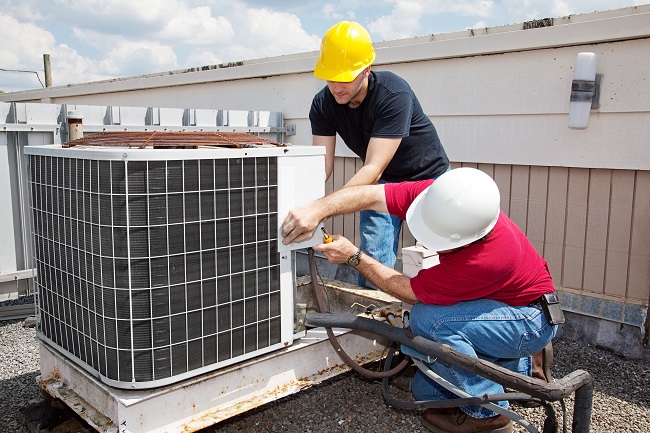What would you do if your commercial AC breaks or malfunctions during the summer? Are you prepared for what you should do next in this situation? Well, for many businesses in America, these situations become a sad reality that they face every single year.
Air conditioners usually tend to collect dust, dirt, and debris over time when they are left sitting for months, and this can prevent them from working properly. However, the following tips will help you spot defects in your AC unit and prepare your business for commercial AC repairs in the summer.

1. Check for refrigerant leaks
Tube walls found inside of the indoor coil can sometimes crack and cause holes to form. When this happens, it will lead to a refrigerant leak that will cause your AC system to lose its cooling power. Refrigerant leaks are often identified by a hissing sound coming from your AC, and you should contact a reputable HVAC company as soon as it is noticed.
2. Check the thermostat
It is a must to check your thermostat to make sure it is functioning properly because a malfunctioning thermostat can cause uneven cooling. The easiest way to do this is to measure the temperature of the room to make sure it matches the temperature settings on the thermostat. If the temperatures are off by a few degrees, it is probably because your thermostat is not working properly and will need to be repaired.
3. Replace your air filters
Dust and dirt will usually accumulate in your air filters faster than any other part of your air conditioner. Not only will this waste money and produce less cold air by causing your AC unit to have to work harder to keep your building cool, but it will also worsen the air quality in your rooms. Consistently replacing your air filters will prevent this problem as much as possible.
4. Check the evaporator coils
Frozen evaporator coils are another common problem that causes air conditioners to malfunction and stop working properly. When the evaporator coil’s temperatures fall below 32 degrees, the coils will begin to freeze when they come in contact with the air surrounding the coils. This will lead to a large block of ice forming on your evaporator coils over time if this problem is not identified and treated as soon as it begins.
5. Check your condenser unit
It’s very important to check your outdoor condenser unit to make sure it is free of objects that could block airflow and hinder your AC’s ability to produce cold air. This can also lead to higher energy bills as well as severe damage to your AC unit as a whole. Removing as much dirt, debris, and loose particles from the area as you possibly can will help prevent this problem from happening. However, if you already notice potential problems with your condenser unit, you should contact a professional HVAC company as soon as possible to clean and inspect it.
Contact our experts at Tri County Air Care for a free quote as soon as possible to have your air conditioner inspected if you notice any of these problems.
